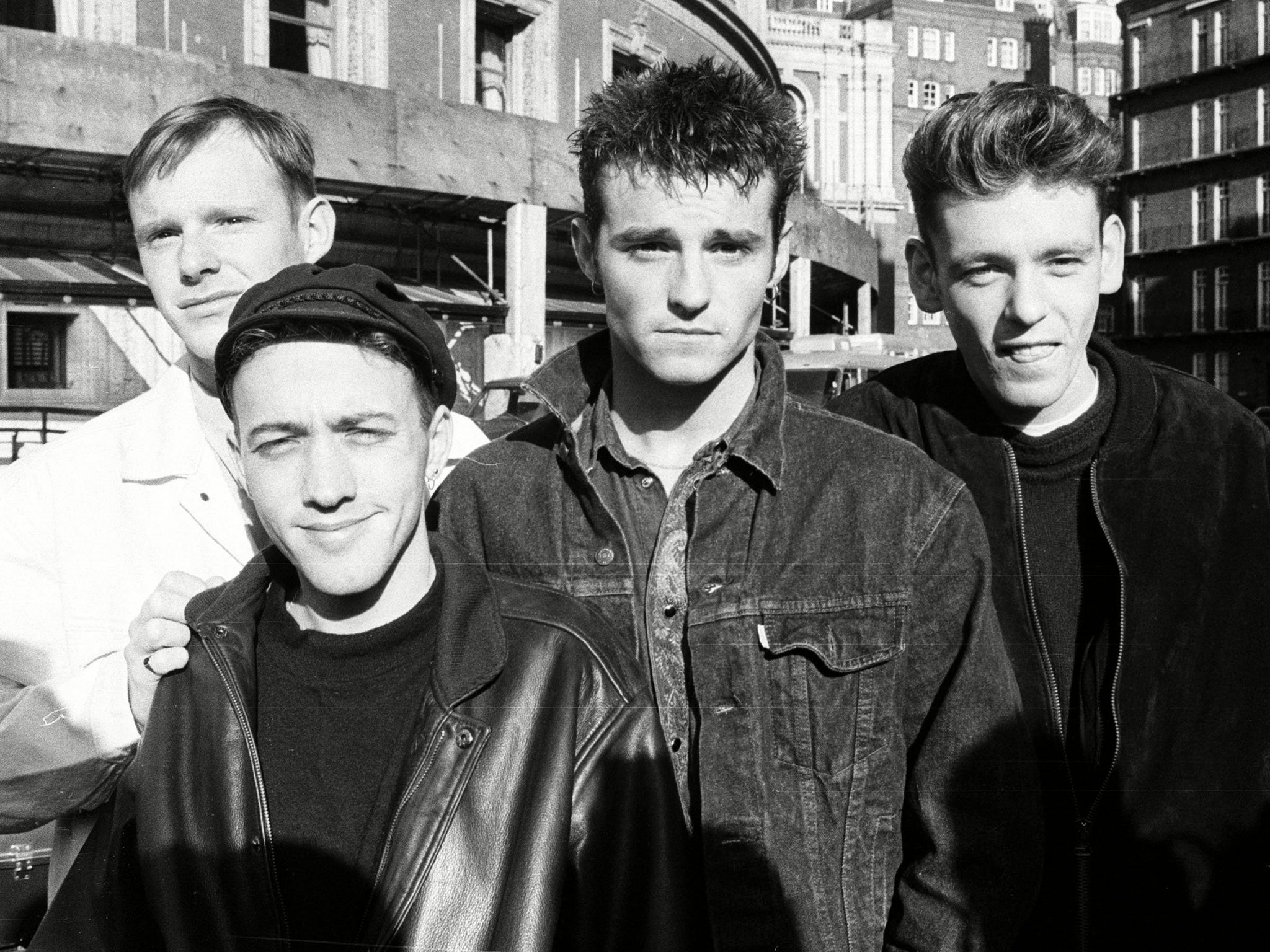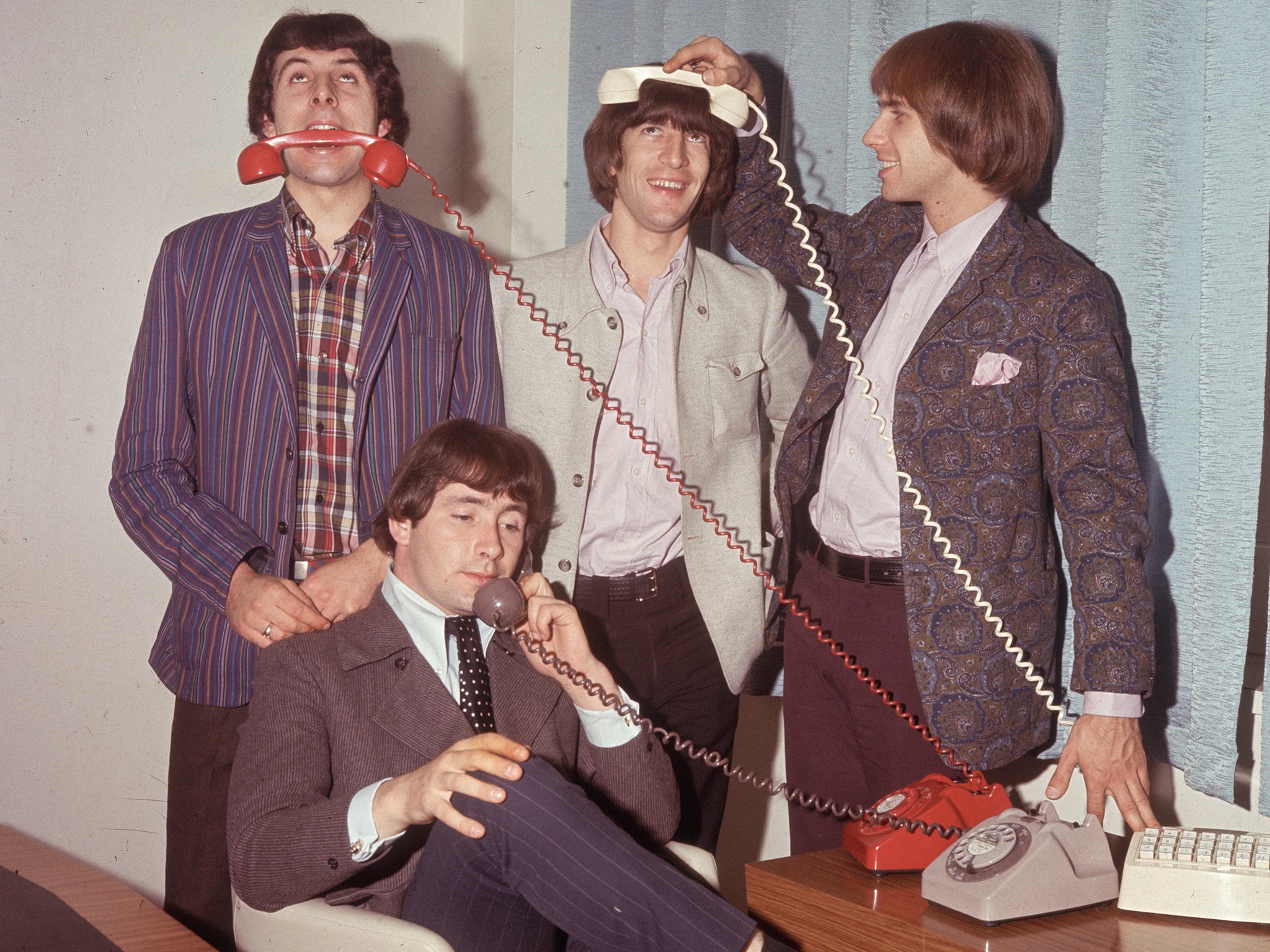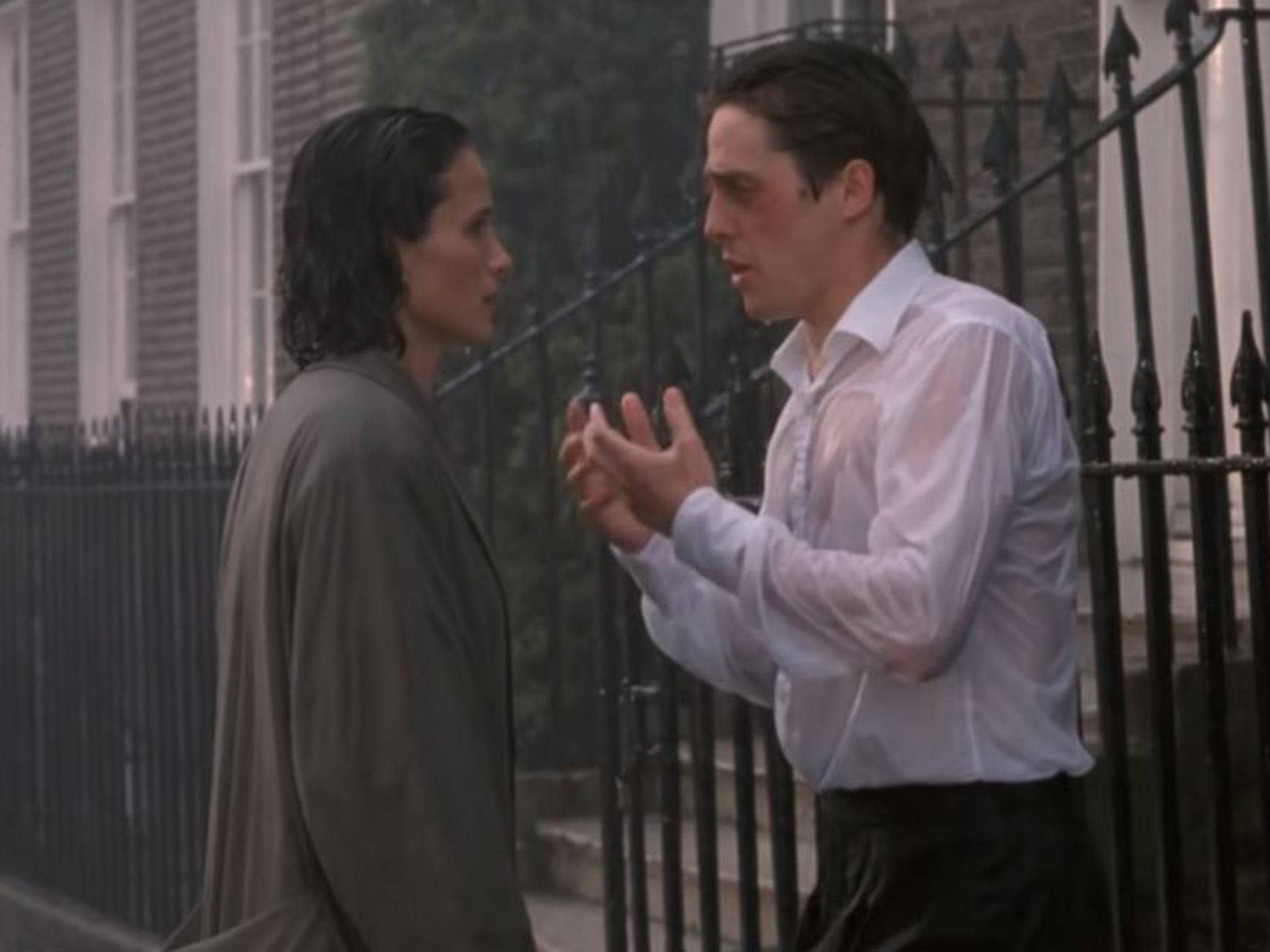What does ‘Love is All Around’ say about the music chart’s descent into irrelevancy?
If you’re over 35, David Barnett reckons you will know what was No 1 in the British singles charts from the spring of 1994 until the autumn. That’s right, Wet Wet Wet’s cover of ‘Love is All Around’ stayed at the top for 15 weeks


Without cheating – asking Google or a nearby child – do you know what’s No 1 in the British singles charts right now? If you do, then well done. You obviously have your finger on the pulse of popular culture. For the other 92 per cent of people reading this… when did this happen? When did you get so out of touch?
If you’re over the age of 35, I bet you remember what was number one not just for most of the spring in 1994, but for the whole of summer and nudging into autumn as well… Wet Wet Wet’s cover version of “Love Is All Around”.
Twenty-five years ago we all knew what was at the top of the hit parade, and that’s because you couldn’t avoid it. Marti Pellow and co squatted at the No 1 spot in the UK charts for a mind-boggling 15 weeks, from the end of May to the beginning of September. That song might be still there now but for the fact that the United Nations staged a covert intervention and dispatched a Danish special agent called Whigfield to topple the Wets in a bloodless Europop coup with her debut single “Saturday Night”.
That didn’t happen, of course; well, Whigfield did get to No 1 on 5 September, but not through any kind of international subterfuge. I think. It was crazy times, to be honest, and anything could have happened. We were all traumatised by that song sitting at the top of the charts for so long. We all went a little bit mad.
“Love Is All Around” had originally been a hit for The Troggs, first released in 1967. It fell into the hands of Wet Wet Wet sometime in 1993, when Richard Curtis approached the band to do a song for a little movie he was planning to release the following year, called Four Weddings and a Funeral.
Wet Wet Wet had been around for at least a decade by then, fronted by the devilish Caledonian smile of Marti Pellow, and had a string of poppy hits such as “Wishing I Was Lucky”, “Sweet Little Mystery” and “Angel Eyes”. Their first number one was with a cover version of the Beatles’ “With A Little Help From My Friends” in 1988, which was in aid of the children’s charity ChildLine.
Curtis apparently offered the Wets a choice of three songs to record for the Four Weddings soundtrack; “Love Is All Around”, Gloria Gaynor’s “I Will Survive” or “Can’t Smile Without You” by Barry Manilow. The feminist anthem of Gloria Gaynor would have been an odd choice for a bunch of blokes from Clydebank, and we can probably only offer silent thanks that the band didn’t take Manilow’s insipid dirge to the top spot for the best part of four months.
So, “Love Is All Around” it was. It debuted in the charts on 15 May, in at No 4. The following week, it had climbed to No 2. Then on 29 May the song arrived at the No 1 spot, took a look around, and decided: “Nice place. I’ll take it.”
Who was still buying this song after 10, 12, 14 weeks? Who hadn’t had a bellyful of it by then?
Gather round, children, because I have a tale to tell you about how we consumed music in those far off, ancient days. Very often our first hearing of them would be when a middle-aged man on the radio, who would in later years be spoken to very sternly by the police for what he got up to when he wasn’t on air, would play us a song. We might then also see for the first time the band behind the song on a Thursday night programme called Top of the Pops, where they would usually be opening and closing their mouths and strumming their unplugged guitars in a bid to convince us they were actually performing the song. And – as in this case – we might hear the song played in the pictures where we’d gone to see a film.
Then, if we decided we liked the song very much, we would actually have to get dressed, leave the house, go to a shop and hand over money to a real person in exchange for a piece of 7” vinyl or a CD single, which we could play at will, so long as we were near a stereo system.
It was quite a feat of dedication, which makes it all the more astonishing that “Love Is All Around” stayed at the top of the charts for 15 weeks. That had been bettered only once before, in 1991, when Bryan Adams’ “(Everything I Do) I Do It For You” – also taken from a movie, Kevin Costner’s take on Robin Hood – stayed at the top spot for 16 weeks.

It meant that people were going out and buying the single. Every day. They were heading to HMV or Woolworths or Our Price in droves, demanding their very own copy of “Love Is All Around”. The single went double platinum, and sold 1.8 million copies.
You could imagine that four weeks in, five, maybe six, then people would still be buying it as they eventually saw Four Weddings and a Funeral and – in the time before movies were made available on DVD or Sky within a few weeks of being on at the cinema – wanted a permanent reminder of the wonderful time they’d had watching Hugh Grant say, “F**. F***. F***ity f***.”
But who was still buying this song after 10, 12, 14 weeks? Who hadn’t had a bellyful of it by then? Who didn’t throw themselves on to their knees and shake their fists at an uncaring universe as the Radio 1 chart countdown DJ revealed, with the forced jollity of an Airstrip One announcer declaring, “We have always been at war with Eurasia”, that “Love Is All Around” had clung on to the No 1 slot?
The world before 1952 and after 2002 managed without knowing how Abba were doing, and I’m sure we can
To their absolute credit, it was Wet Wet Wet who eventually put a bullet into the head of “Love Is All Around”, like Doctor Frankenstein pursuing his creature to the frozen wastes to put an end to the terror that he had wrought. They voluntarily took it out of production, even though it was still selling 120,000 copies a week.
Of course, the charts weren’t the only measure of the music landscape. Indeed, if you were a fan of indie, or metal, or rap, then your favourite acts were unlikely to trouble the charts anyway. You instead got your information fix and recommendations from the music press.
David Quantick worked for the NME from the early 1980s until 1997, before embarking on a career as a TV writer (The Thick of It, The Day Today, Veep) and author (his latest novel, All My Colors, is out this month). As you can imagine, the relentless success of Wet Wet Wet was cause for some mockery in the NME offices.
“But then, everything was mocked,” says Quantick. “Really, the song was just a noise going on elsewhere. It wasn’t until the corporate indie of Britpop that the idea of an NME band being number one or being huge kicked in. We were more concerned with filling the charts with bands we liked – but the indie chart was created so good bands who the world didn’t know could get a mention.”
With the way we consume music so different now than it was 25 or 30 years ago, do the charts and what’s at No 1 even matter any more?
“There are more distractions now, and the world is fragmented,” says Quantick. “And it was nice to be united even in disagreement. But the world before 1952 and after 2002 managed without knowing how Abba were doing, and I’m sure we can.
“We are always being told how music is over, but it seems to go on. We read about the stars and hear their music and they are rich – perhaps even richer now. The only thing I miss is obscurity – when I was young, acts could have entire careers two streets away and you’d never know. Now a girl in Soweto makes an EP and it’s all over the world in seconds.”
Jeff Rougvie is an American who’s embedded in the music industry, and has worked as a producer, DJ and music historian. He’s played in bands, worked in a record shop, and headed up Rykodisc’s A&R department. Is chart success important any more? In fact, has it ever really been?
“More for the acts than the company, in my case – throughout my career we just wanted to sell records, stay profitable and remain in business!” says Rougvie. “Yes, there were stores that’d buy more records if the record charted, so that was relevant, but these were fairweather friends at best. Of course, getting on the charts was exciting for the artists, how could it not be?”

But the importance of the charts to bands and consumers is not the force it once was. When did that start to happen? Rougvie ruminates: “When the fans grabbed the wheel from the labels, around the time of Napster [the online file-sharing platform founded in 1999], I’d guess, they’ve only gotten less relevant from there, inasmuch as the ‘democratisation of the internet’ has flattened music itself into a somewhat boring pancake.”
For Rougvie, the decline of the power of the charts is something of a double-edged sword. “The charts were typically a manipulated abomination of reality and largely filled with utter crap, so on one hand, good riddance,” he says. “But they were also a rallying point for new stylistic movements in music, something we haven’t seen since, what, EDM? Not saying the charts were the only contributor to musical movements, but when a punk band charted, people got excited. It helped shift the tides, and that’s always good for art.”
But enough from old men like Quantick, Rougvie and me. What do the people who actually matter – the youth – think about the charts these days? Emily Rhodes is an emerging singer-songwriter from Preston in Lancashire. At 15 she’s a genuine young person, and has just released her debut single, “Get Out of My Way”, through streaming and download platforms such as Spotify and Apple Music. So, who’s top of the hit parade, Emily?
When a punk band charted, people got excited. It helped shift the tides, and that’s always good for art
“I’m personally not that bothered about knowing who is at No 1 because it doesn’t tend to be the type of music I’m into that rides high in the charts,” she says. “People at school who do listen to the charts are into it for a week but they move quickly on to something else. There doesn’t seem to be any loyalty to the song or artist – it all seems to be a bit throwaway.”
That said, wouldn’t Emily like to be No 1? “Of course,” she says. “When you’ve worked so hard on your music it would be amazing to know that so many people like your music as much as you do. I write my own music, so for me it’s about getting people to listen to what I do and it would be amazing for them to continually like my songs rather than just have one hit and be forgotten.”

The democratisation of the internet that Jeff Rougvie was talking about has done wonders for new artists such as Emily. No longer is the only route to getting your music heard through nabbing a record deal and getting radio airplay (and having Richard Curtis pick you for his movie soundtrack).
Emily says: “The way people access music has changed so much so it’s not just about getting to the charts any more, but you need people to listen and subscribe to your music on YouTube and Spotify and across all platforms so you can continually grow your audience.
“And, of course, playing live is the best. You actually get to see what people think of what you’re doing. For me, as I’m only 15, that can be anything from open mic nights to when I get support slots. You can’t beat the buzz when you get a reaction from a crowd or they sing along to a song you’ve written yourself.
“There are now so many different platforms to reach an audience and, particularly for artists starting out and young people like me, the fact you can use all these different platforms really gives you so many more opportunities to be heard.”
Had those streaming and downloading platforms been available 25 years ago, would Wet Wet Wet have spent even longer on the charts, because it was easier to get hold of, or would all those people have purchased the song in a shorter, more concentrated time frame? It’s an imponderable.
“Love Is All Around” might have been pipped to the record books by Bryan Adams, whose 16-week reign was equalled as recently as 2016 by Drake’s “One Dance”, but there’s something about that particular song and its domination of the top spot in summer 1994 that seems to be representative of a different time, when music seemed to unite people – both in the love of something, and then later in decrying it.

You might think someone like David Quantick, possessor of an acerbic wit and employee of the NME during its period when it famously seemed to hate everything, might have no truck with that song and that band at all. But you’d be wrong. And also, crucially, the success of “Love Is All Around” might actually be all his fault.
“I liked Wet Wet Wet a lot, as people and musically,” says Quantick. “I knew the people who looked after them, Elliot Davies and Andrea Miller, and made their debut single, ‘Wishing I Was Lucky’, the NME’s Single of the Week. Then when Roy Carr [NME journalist and compiler of the free tape and CDs for the paper and other music magazines] asked me and Terry Staunton to give him some new band names for his charity album of Beatles covers, I suggested the Wets. ‘With A Little Help’ was not only their first, massive hit, but must have inspired Richard Curtis to get them to record another Sixties cover.”
And that, my friends, is written on the wind.
Join our commenting forum
Join thought-provoking conversations, follow other Independent readers and see their replies
Comments
Bookmark popover
Removed from bookmarks